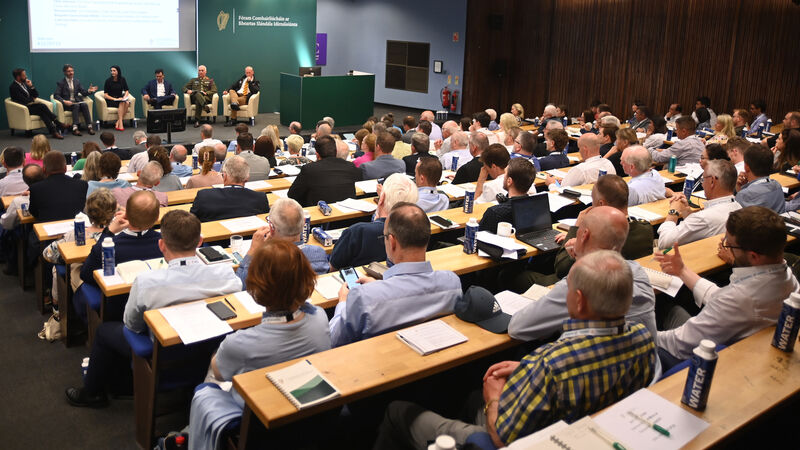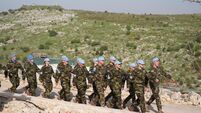One-sided discussion on Irish neutrality does not serve democracy

A panel on cybersecurity during the first day of the Consultative Forum on International Security Policy at UCC in June 2023. The authors write that, of the 80-plus speakers at that forum, only one publicly advocates maintaining neutrality. Picture: Larry Cummins
On a recent RTÉ radio show, presidential candidate Catherine Connolly was subjected to what can only be described as an interrogation. Over the course of 20 minutes, the interviewer did not ask her a single question about why she is standing, about her values and vision, or about the grassroots campaign building around her. Instead, Connolly was repeatedly asked to justify herself in light of points of criticism quoted from and Tipp FM.
This interview was just one example of numerous negative articles and discussions about Connolly in major media outlets in recent weeks. Whilst much of this negative coverage has focused on Connolly’s past association with figures deemed beyond the pale, the real motivation seems to lie with her positions on neutrality, militarisation, and foreign policy.
















